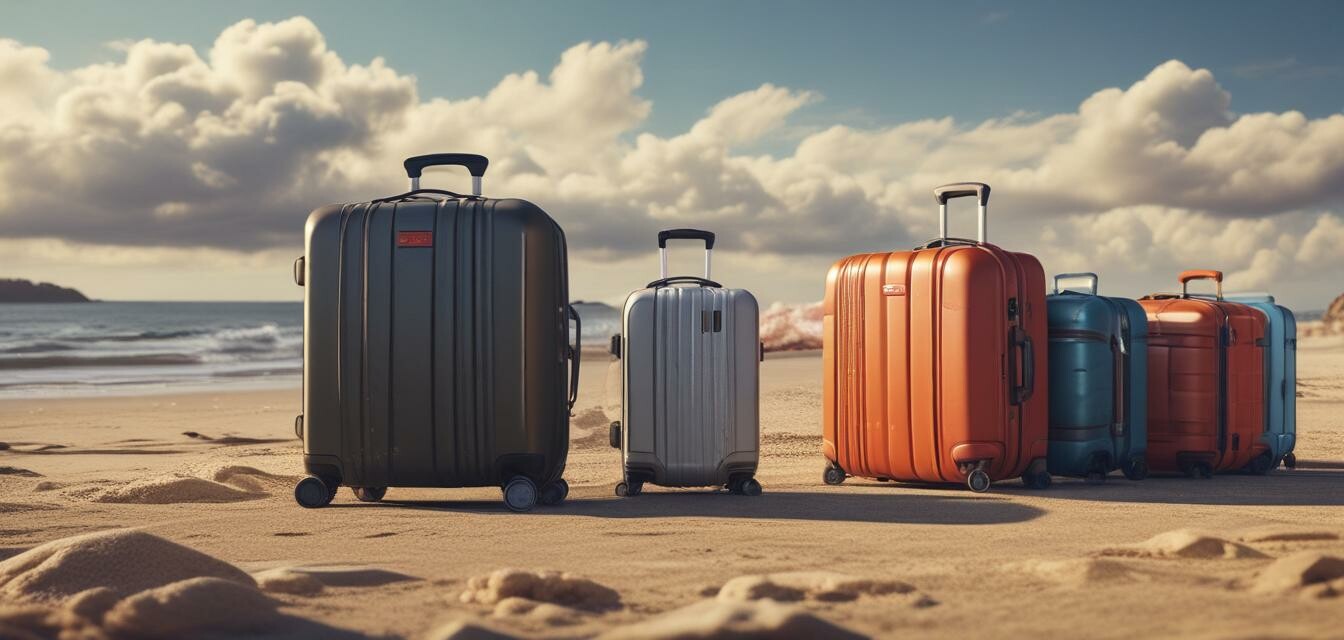
How COVID-19 Changed Luggage Design Forever
Key Takeaways
- The COVID-19 pandemic shifted traveler priorities towards hygiene and functionality.
- Innovative materials and designs focus on cleanliness and ease of use.
- Travelers now prefer multi-functional luggage that addresses sanitation concerns.
- Brands are increasingly adopting sustainable practices in luggage production.
The COVID-19 pandemic has had a profound effect on travel, reshaping not only how we travel but also how luggage is designed and used. The need for hygiene and functionality has resulted in innovative changes in luggage design that cater to modern traveler needs. In this article, we will explore how these trends have emerged and what they mean for the future of luggage.
The evolution of traveler priorities
Before the pandemic, luggage design was mainly focused on aesthetics and lightweight features. However, as health and safety became a pivotal concern for travelers worldwide, functionality and hygiene emerged as top priorities.
1. Enhanced hygiene features
Travelers began seeking luggage options that promote cleanliness. This shift has led to the inclusion of several features in luggage designs:
- Antimicrobial materials
Using fabrics treated with antimicrobial solutions helps prevent bacterial growth. - Self-cleaning technology
Some brands are developing fabrics that can eliminate germs on contact. - Easy-to-clean surfaces
Materials that are straightforward to wipe down and sanitize have become popular.
2. Functionality redefined
COVID-19 has made travelers rethink how they interact with their luggage. As a result, multi-functional designs have gained traction:
- Expandable compartments
Allows for added space without needing additional luggage. - Built-in organizers
Improves packing efficiency and keeps belongings secure. - Smart technology integration
Including features such as GPS tracking and USB ports for charging devices on the go.
Sustainability in luggage design
Another trend emerging from this pandemic is a heightened focus on sustainability. With more travelers concerned about the environment, brands are starting to respond to these preferences:
- Use of recycled materials
To minimize waste and lessen environmental impact. - Durable designs
Encouraging long-term use rather than frequent replacement. - Eco-friendly manufacturing processes
Aiming for a lower carbon footprint in production.
Impact of technology on luggage design
The integration of technology has drastically changed how luggage is designed, enhancing functionality and user experience:
| Technology | Description | Benefits |
|---|---|---|
| GPS Tracking | Built-in tracking devices that help locate luggage. | Provides peace of mind and reduces loss. |
| Built-in Scales | Allows users to weigh their luggage before heading to the airport. | Prevents excess baggage fees. |
| USB Charging Ports | Charging ports integrated into the luggage for mobile devices. | Keeps travelers connected without needing separate chargers. |
Changing travel regulations
With changes in air travel regulations, travelers are also adapting their luggage choices:
- Carry-on limitations
More travelers are opting for well-organized carry-ons to quickly access essentials. - Health safety instructions
Travelers are now more aware of regulations regarding sanitization and safety protocols.
The future of luggage design
As we move forward, the luggage industry will continue to adapt to the ongoing challenges posed by health concerns:
- Focus on innovation
Constant advancements in materials and design will reshape luggage trends. - Increased traveler engagement
Brands will engage with customers to understand evolving needs. - Collaboration with tech companies
To introduce smarter solutions in luggage design.
Pros
- Improved hygiene for healthier travels
- Enhanced functionality and user experience
- Sustainable practices leading to eco-friendliness
- Integration of technology that makes travel easier
Cons
- Higher cost associated with advanced features
- Possible complexity for some users
- Transitioning from traditional luggage may require adjustment
Conclusion
The COVID-19 pandemic has fundamentally changed luggage design forever. With the focus on hygiene, functionality, and sustainability now at the forefront, travelers are seeking solutions that meet these new priorities. As brands continue to innovate and adapt, we can expect to see ongoing changes in luggage technology and design that will ensure a safer and more enjoyable travel experience.
Stay updated on the latest trends in luggage design and travel accessories by exploring our News & Trends category.